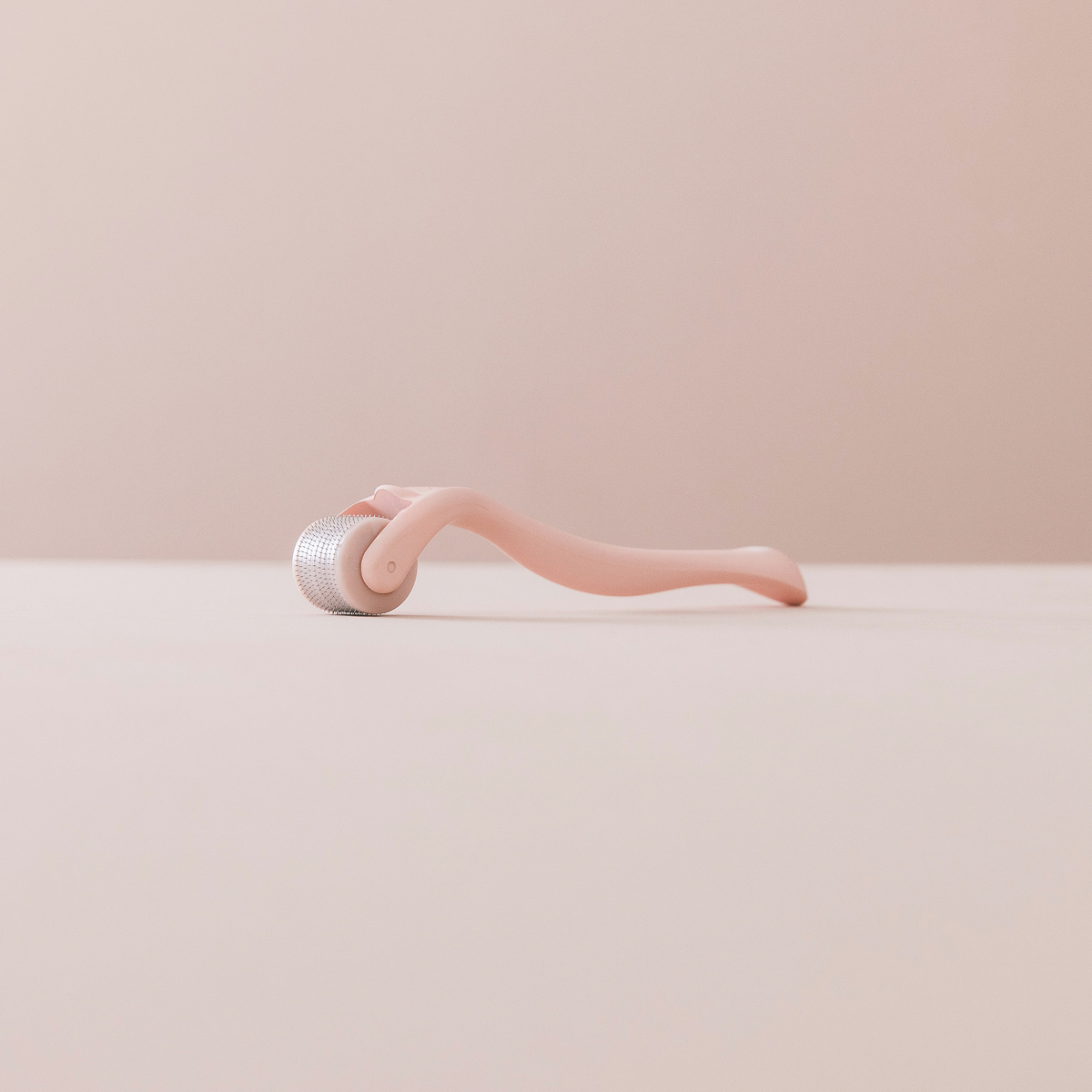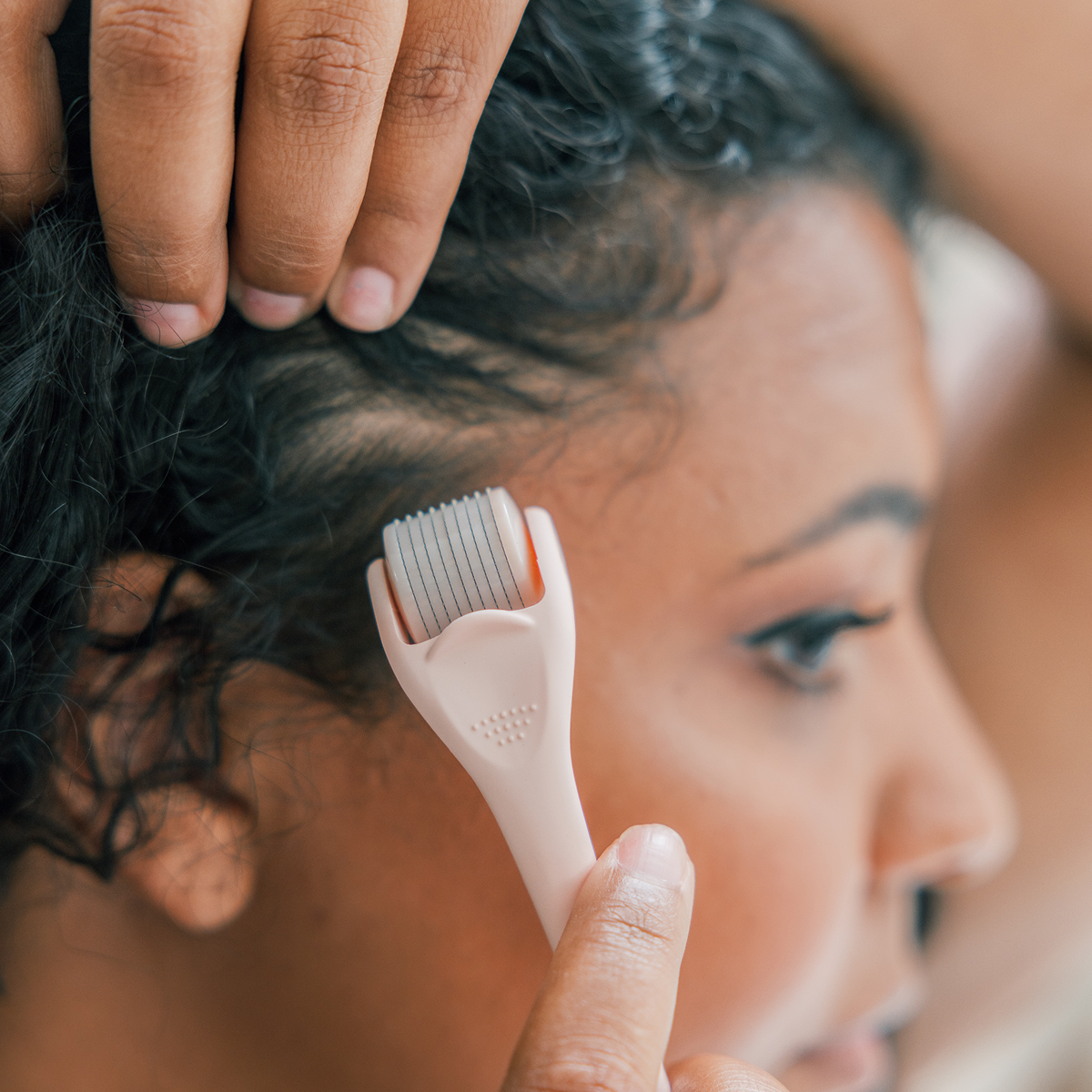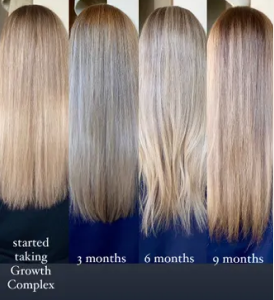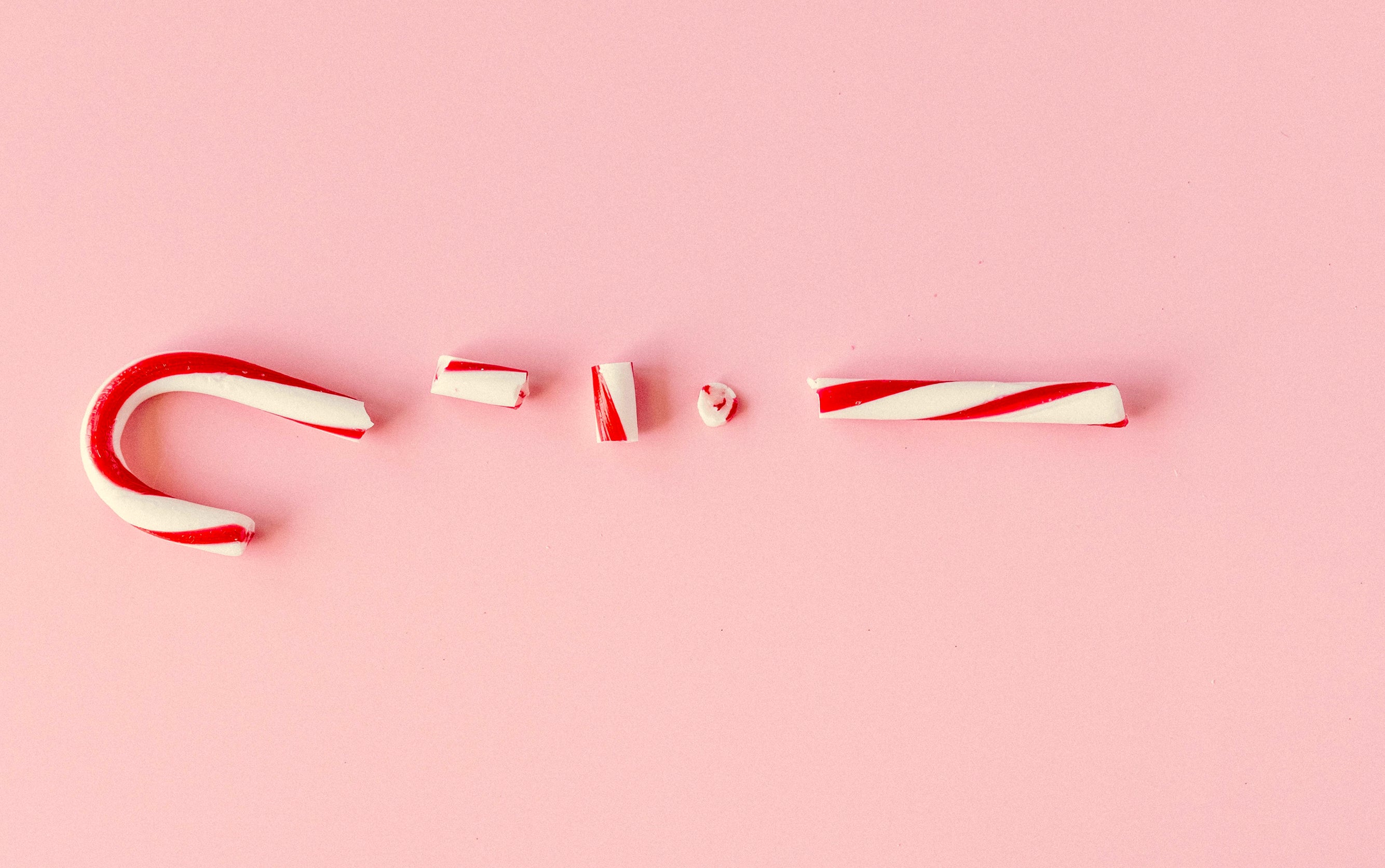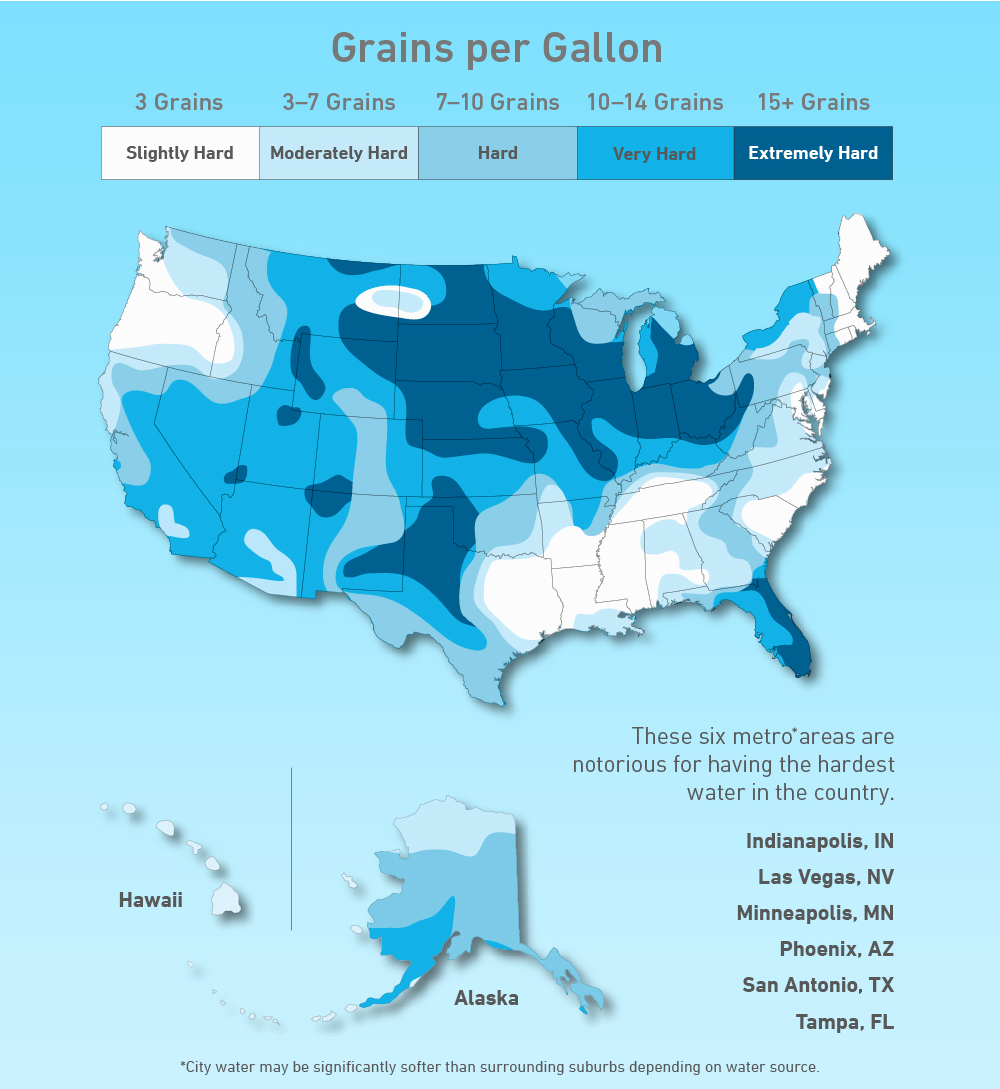Did you know there’s a high chance you’re living in an area with hard water?
It’s true!
In fact, a whopping 85% of the US has hard water – see for yourself on the hard water map below˯˯˯
, opens in a new tabThat means if you don’t have some kind of water softening system, you’re probably dealing with hard water hair issues.
Hard water will, no matter how well you take care of your hair, affect the look, feel, and long-term health of your hair.
In this blog post, I’m going to walk you through:
- What hard water is
- How it affects your hair
- How to protect your hair from it!
What is hard water?

Hard water is full of natural minerals, primarily calcium and magnesium.
But how does it get this way?
As water passes through rocks and soil, it picks up different minerals along its journey to your home.
It’s these minerals that give water its ‘hardness’.
How to tell if you have hard water
One quick way to tell if you have hard water is to look at your faucets. Is there a crystallized build up of powdery white or greenish coating?
If so, then you’re likely seeing hard water deposits.
Now just imagine what those hard water deposits are doing to your hair!
How does hard water affect your hair?

In a study published on the National Library of Medicine, opens in a new tab, researchers concluded that hard water decreases hair thickness, and makes hair look more ruffled in appearance.
The accumulation of hard-water minerals on your scalp and in your hair strands can also cause issues like:
Dryness and frizz
Hard-water minerals strip away your hair’s natural oils, leaving it dry and more prone to frizzing out. These minerals can also disrupt the moisture balance of your hair, resulting in a rougher texture and disheveled appearance.
Dullness, faded color
Just like your faucets, hard-water mineral deposits coat your hair with a film, diminishing its natural shine and luster. Your hair color (both natural and color-treated) may also look more faded than normal.
Tangles and breakage
A higher concentration of minerals coating your hair will weaken its integrity, making your hair thinner and more susceptible to tangles, breakage, and other damage.
Lack of volume
Hard-water mineral build-up will weigh your hair down, making it less voluminous and bouncy. Your hair will also be more resistant to certain styling products, meaning you won't be able to achieve your desired hair styles as easily.
* Depending on your hair type, hard water may affect your hair more (or less) than others.
Hair textures that are highly porous (curly hair and chemically/color-treated hair), or those already prone to dryness and frizz (fine hair) are more susceptible to minerals penetrating deeper into their hair structure.
How to protect your hair from hard water
Hard water hair damage can really put a kink in the look, feel, and overall health of your hair.
The good news is, you can minimize the effects of hard water hair damage – and potentially even eliminate its impact altogether.
Reverse and mitigate hard water hair damage by choosing the following options:
Install a water softener or use a shower filter
Water softening systems and shower filters – like Jolie's highly rated The Filtered Showerhead – stop hard water at the source. These systems drastically reduce hard-water minerals, and effectively soften your water for healthier, more hydrated hair.
Use a clarifying or chelating shampoo
These shampoos are specifically formulated to break down mineral build-up and restore your hair's natural shine. Keep in mind these treatments can be very drying, so only use a clarifying or chelating shampoo once per week at most.
Deep condition with hydrating treatments
Great in conjunction with purifying shampoos, treat your hair to regular deep conditioning treatments to replenish moisture and restore vitality. Hydrating masks and conditioners – like HAIRLOVE Nourish + Repair Serum will restore moisture balance and protect your hair from the inside out.
Rinse with apple cider vinegar
High-acidity helps neutralize mineral deposits, restore pH balance, and leave your hair shiny, soft and silky. After shampooing, pour a mixture of 1-part apple cider vinegar with 2-parts distilled water through your scalp. Massage through your hair and scalp, which is also good at physically removing mineral build up. Let your hair sit for 5 minute, then rinse thoroughly with distilled water.
Remember, consistency is key in maintaining healthy and vibrant hair, even in the face of hard water challenges!















